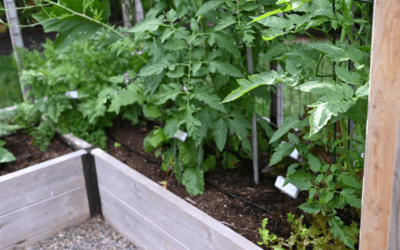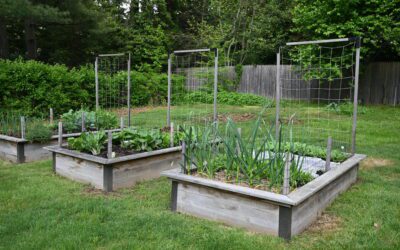Keeping an edible backyard garden can be a lot of work. There’s a lot to think about between making sure the raised garden beds are the right size, getting the right mix of sun and shade, and ensuring enough drainage.
Working with backyard designers or gardening services to help you create and maintain a garden that meets your specific needs is essential. In this blog, we’ll go over some tips for growing and edible gardening. Keep reading to learn more!
7 Tips For Growing An Edible Garden
Hints to help you get started with an edible garden include:
1. Get The Most Of Your North-Facing Wall
If you want to make the most of your north-facing wall, consider planting leafy greens. They’ll get plenty of suns and won’t require as much water as other plants.
From May to October, a North facing garden will benefit from evening sunshine. During these months, vegetables that do well with three to four hours of sun include rocket, lettuce, mint, oregano, and chives.
2. Remove Weeds Regularly
If left unchecked, weeds can quickly take over a raised garden bed, crowding out other plants and robbing them of vital nutrients. While a wedding can be time-consuming, it is essential to remove weeds regularly.
One way to make weed removal more accessible is to hire a professional backyard designer or gardening service. They will have the experience and equipment needed to quickly and effectively.
3. Compost Most Garden Materials
Composting is a great way to provide more nutrients to your soil and raised garden beds. By composting most garden materials, you can help improve the quality of your soil. It’s important to avoid problem weeds in the compost, as they can take over your garden beds.
However, by working with a backyard designer or gardening service, you can easily find ways to compost without worrying about the problem of weeds.
4. Use Organic Fertilizers
Organic fertilizers are a great way to provide nutrients to your soil and plants. They’re also relatively inexpensive, making them an excellent option for gardeners on a budget.
Some common organic fertilizers include manure, compost, and blood meal. These can be applied to your soil or raised garden beds in small amounts every few weeks.
5. Mulch To Conserve Water
Mulching is a great way to conserve water in your garden. It helps to prevent evaporation and can also help to keep weeds at bay. There are many different types of mulch available, so it’s essential to choose one that’s right for your garden. Some standard options include straw, wood chips, and leaves.
6. Use Non-Chemical Remedies
There are many non-chemical ways to deter pests from your garden. Some standard options include Companion Planting, using traps, and creating barriers.
7. Rotate Crops Regularly
Crop rotation is a great way to keep your plants healthy. By rotating crops, you can help to prevent pests and diseases from taking over your garden.
Sit Back And Let Backyard Eats Help You
At Backyard Eats, we believe that everyone deserves to enjoy freshly grown fruits and vegetables. That’s why we offer a wide range of gardening services to help you keep your garden looking its best.
Our team of backyard designers can also help you plan and install a new garden, ensuring that it meets your specific needs. So if you’re looking for expert gardening services, don’t hesitate and contact us!



